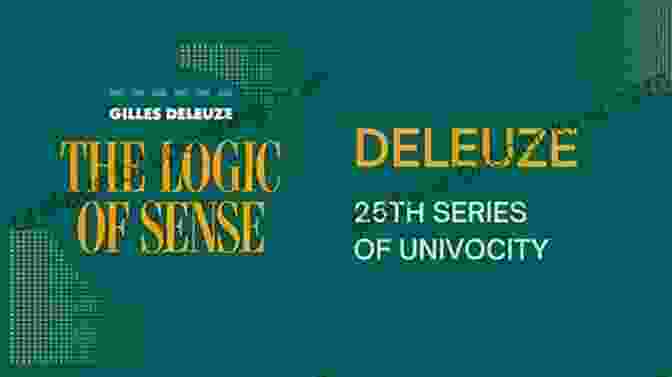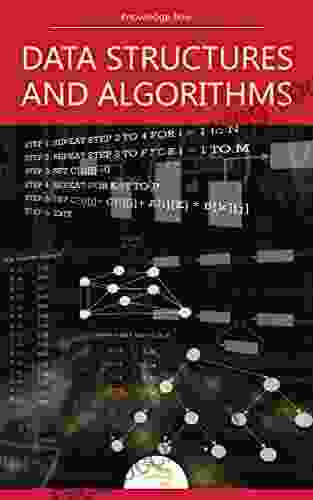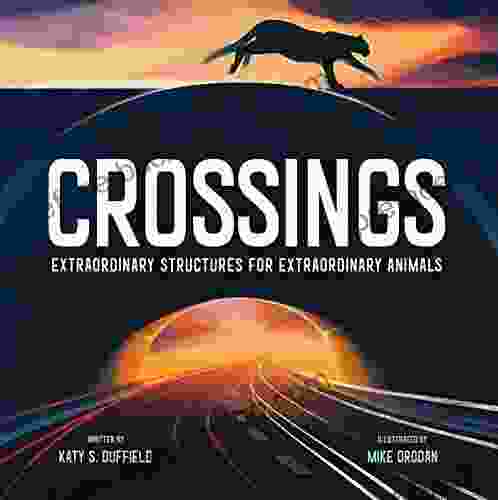Deleuze and Guattari Versus Accelerationism: The Univocity of Deleuze

In their book, Deleuze and Guattari Versus Accelerationism: The Univocity of Deleuze, authors Rosi Braidotti and Maurizio Lazzarato argue that the work of Gilles Deleuze and Félix Guattari provides a more nuanced and sophisticated understanding of capitalism and its discontents than the accelerationist movement. Braidotti and Lazzarato contend that accelerationism's embrace of capitalism's inherent violence and its call for a further acceleration of that violence is ultimately self-defeating. They argue that Deleuze and Guattari's work offers a more hopeful and creative vision of the future, one that is based on the creation of new forms of subjectivity and collectivity.
Braidotti and Lazzarato begin their book by outlining the basic tenets of accelerationism. Accelerationism is a political and philosophical movement that argues that capitalism's inherent violence and its constant drive for growth and innovation should be embraced rather than resisted. Accelerationists believe that the only way to escape the dead end of capitalism is to accelerate its own processes, to push it to its limits. This, they argue, will lead to a new and more intense form of capitalism, one that will be more creative and dynamic than the current system.
5 out of 5
| Language | : | English |
| File size | : | 1301 KB |
| Text-to-Speech | : | Enabled |
| Screen Reader | : | Supported |
| Enhanced typesetting | : | Enabled |
| Print length | : | 13 pages |
| Lending | : | Enabled |
Braidotti and Lazzarato argue that accelerationism's embrace of violence is ultimately self-defeating. They contend that violence is not a creative force, but rather a destructive one. Violence always leads to more violence, and it never solves the problems that it is supposed to address. Braidotti and Lazzarato argue that Deleuze and Guattari's work offers a more hopeful and creative vision of the future, one that is based on the creation of new forms of subjectivity and collectivity.
Deleuze and Guattari's work is characterized by its emphasis on difference, creativity, and becoming. They argue that the world is not a static entity, but rather a constantly changing and evolving process. They also argue that there is no such thing as a single, essential identity. Instead, they believe that all identities are fluid and constantly in flux. This, they contend, is what makes creativity possible. Creativity is the process of creating new and different things, and it is only possible when we are open to change and difference. Braidotti and Lazzarato argue that Deleuze and Guattari's work provides a powerful theoretical framework for understanding the challenges and opportunities of the contemporary world. They contend that Deleuze and Guattari's work can help us to create new forms of subjectivity and collectivity, and to build a more just and equitable world.
The Univocity of Deleuze
One of the most important concepts in Deleuze and Guattari's work is the concept of univocity. Univocity is the idea that all things are made of the same stuff. This means that there is no essential difference between humans and animals, between plants and minerals, or between organic and inorganic matter. All things are part of the same continuum, and they are all subject to the same laws of nature. Braidotti and Lazzarato argue that the concept of univocity is essential for understanding Deleuze and Guattari's work on capitalism. They contend that capitalism is based on the division between humans and animals, between plants and minerals, and between organic and inorganic matter. This division is used to justify the exploitation of animals, plants, and the environment. Braidotti and Lazzarato argue that Deleuze and Guattari's concept of univocity provides a powerful critique of capitalism. They contend that univocity shows that there is no essential difference between humans and other beings, and that we are all part of the same continuum. This, they argue, undermines the justifications for exploitation and oppression.
Deleuze and Guattari on Capitalism
Deleuze and Guattari's work on capitalism is complex and multifaceted. They argue that capitalism is a system of power that is based on the exploitation of difference. They also argue that capitalism is a system of desire that is based on the production of new and ever-more intense desires. Braidotti and Lazzarato contend that Deleuze and Guattari's work on capitalism provides a powerful critique of the contemporary world. They argue that Deleuze and Guattari's work can help us to understand the ways in which capitalism exploits difference and produces desire. This, they argue, can help us to develop new strategies for resistance and transformation.
Deleuze and Guattari on Subjectivity and Collectivity
Deleuze and Guattari's work on subjectivity and collectivity is also complex and multifaceted. They argue that subjectivity is not a fixed and essential entity, but rather a constantly changing and evolving process. They also argue that collectivity is not a simple aggregation of individuals, but rather a complex and dynamic network of relationships. Braidotti and Lazzarato contend that Deleuze and Guattari's work on subjectivity and collectivity provides a powerful resource for understanding the challenges and opportunities of the contemporary world. They argue that Deleuze and Guattari's work can help us to create new forms of subjectivity and collectivity, and to build a more just and equitable world.
In Deleuze and Guattari Versus Accelerationism: The Univocity of Deleuze, Braidotti and Lazzarato provide a powerful and nuanced critique of accelerationism. They argue that accelerationism's embrace of violence is ultimately self-defeating, and that Deleuze and Guattari's work offers a more hopeful and creative vision of the future. Braidotti and Lazzarato's book is an essential read for anyone interested in Deleuze and Guattari's work, or in the contemporary debates on capitalism and its discontents.

5 out of 5
| Language | : | English |
| File size | : | 1301 KB |
| Text-to-Speech | : | Enabled |
| Screen Reader | : | Supported |
| Enhanced typesetting | : | Enabled |
| Print length | : | 13 pages |
| Lending | : | Enabled |
Do you want to contribute by writing guest posts on this blog?
Please contact us and send us a resume of previous articles that you have written.
 Book
Book Novel
Novel Page
Page Chapter
Chapter Text
Text Story
Story Genre
Genre Reader
Reader Library
Library Paperback
Paperback E-book
E-book Magazine
Magazine Newspaper
Newspaper Paragraph
Paragraph Sentence
Sentence Bookmark
Bookmark Shelf
Shelf Glossary
Glossary Bibliography
Bibliography Foreword
Foreword Preface
Preface Synopsis
Synopsis Annotation
Annotation Footnote
Footnote Manuscript
Manuscript Scroll
Scroll Codex
Codex Tome
Tome Bestseller
Bestseller Classics
Classics Library card
Library card Narrative
Narrative Biography
Biography Autobiography
Autobiography Memoir
Memoir Reference
Reference Encyclopedia
Encyclopedia Grant Mccracken
Grant Mccracken Halina Ogonowska Coates
Halina Ogonowska Coates Greg Melville
Greg Melville Grace Lees Maffei
Grace Lees Maffei Harlan Coben
Harlan Coben Glenn R Schiraldi
Glenn R Schiraldi Glennette Tilley Turner
Glennette Tilley Turner Simon Tam
Simon Tam Robert Graves
Robert Graves John J Domagalski
John J Domagalski Paul S Auerbach
Paul S Auerbach Greg Creed
Greg Creed Guinevere Durham
Guinevere Durham Jonathan Walker
Jonathan Walker Hanan Hammad
Hanan Hammad Gregory L Morris
Gregory L Morris Sharon Peters
Sharon Peters Greg Lim
Greg Lim Gregory Hodges
Gregory Hodges Gregory T Cushman
Gregory T Cushman
Light bulbAdvertise smarter! Our strategic ad space ensures maximum exposure. Reserve your spot today!

 Quentin PowellDesign Principles For Turning Your Largest Expense Into Strategic Advantage
Quentin PowellDesign Principles For Turning Your Largest Expense Into Strategic Advantage
 Jedidiah HayesAn Uncommon Red Guard: A Story of Resilience and Redemption in the Cultural...
Jedidiah HayesAn Uncommon Red Guard: A Story of Resilience and Redemption in the Cultural... Carlos FuentesFollow ·18.4k
Carlos FuentesFollow ·18.4k Russell MitchellFollow ·5.9k
Russell MitchellFollow ·5.9k Arthur Conan DoyleFollow ·2.6k
Arthur Conan DoyleFollow ·2.6k Oscar WildeFollow ·18.4k
Oscar WildeFollow ·18.4k William ShakespeareFollow ·18.2k
William ShakespeareFollow ·18.2k Derek CookFollow ·18.4k
Derek CookFollow ·18.4k Jason ReedFollow ·12.7k
Jason ReedFollow ·12.7k Ignacio HayesFollow ·14k
Ignacio HayesFollow ·14k

 Brady Mitchell
Brady MitchellMaster IELTS Speaking: The Ultimate Guide to Success
Kickstart Your IELTS...

 Branden Simmons
Branden SimmonsBack Spin: A Thrilling Myron Bolitar Novel
Get ready to embark on a...

 Marc Foster
Marc FosterData Structures and Algorithms: A Comprehensive Guide to...
In the ever-evolving...

 Jeff Foster
Jeff FosterUnveiling the Basics of Microbiology: A Comprehensive...
The world of...

 J.D. Salinger
J.D. SalingerHold Tight Suspense Thriller: A Gripping Page-Turner That...
Are you ready for a suspense thriller that...
5 out of 5
| Language | : | English |
| File size | : | 1301 KB |
| Text-to-Speech | : | Enabled |
| Screen Reader | : | Supported |
| Enhanced typesetting | : | Enabled |
| Print length | : | 13 pages |
| Lending | : | Enabled |










